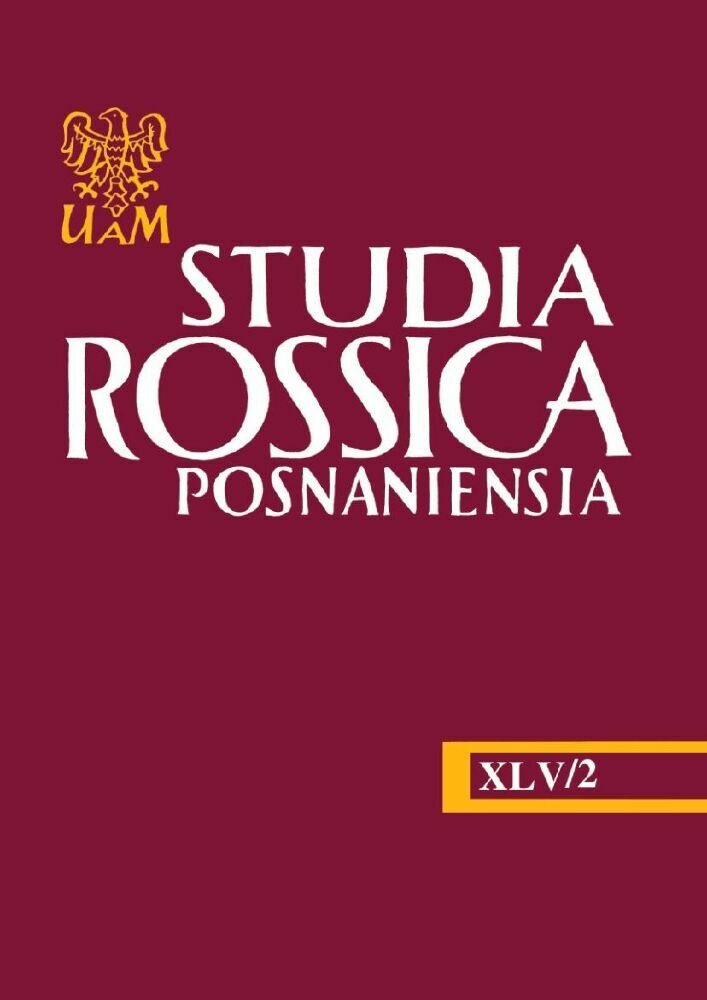Аннотация
The development of the Internet gave life to Internet memes. Their diversity and rapid growth contributed to the formation of the memosphere, the development of which is accompanied by the emergence of lexical innovations. These include language memes and the names of meme genres. All of them are the result of linguistic creativity, which in relation to the names of meme genres, covers several stages: English loanwords for the name of the meme genre, their adaptation in Russian, changes in semantics, and preference for specific neologisms. The concept of lexical innovation was apprehended on the foundation of Markovsky’s concept. The study of lexical innovations was carried out within the framework of the structural-semantic direction, as well as on the basis of the theory of Kotelova and the concepts of Rakhmanova and Suzdaltseva. Studies have shown that semantic changes in the names of meme genres are associated with a denotation change. Changes in the semantics of word loaning are very dynamic as English loanwords enable the swift naming of new realities. This tendency towards the internationalization of vocabulary is related to the Internet and the memosphere. The obtained results fill the gap in the study of vocabulary related to the memosphere. A few studies of meme genres relate to their description and analysis, yet do not focus on the semantic and graphic modification of loanwords. This work presents the unprecedented mechanisms and stages of the formation of meme genres names.
Библиографические ссылки
Belov, Nikolaj. Slovarʹ molodežnogo i internet-slenga. Minsk, Harvest, 2007.
Buttler, Danuta. „Neologizm i terminy pokrewne”. Poradnik Językowy, 5–6 (200–201), 1962, s. 235–244. Chomik, Milena, Monika Krajewska. Od nominacji do kreacji. Toruń, Wydawnictwo Naukowe Uniwersytetu Mikołaja Kopernika, 2011.
Golovin, Boris. Vvedenie v âzykoznanie. Moskva, Vysšaâ škola, 1977.
Grehova, Elena, Irina Zavʹâlova. Motivatory i ih socialʹnaâ značimostʹ. Web. 08.09.2019. https://лендюц.екатеринбург.рф/file/1af478f6e4f969b72292e9abb5a6f1fc.
Kačmazova, Alina. Kreolizovannyj tekst kak žanr internet-diskursa. Web. 08.09.2019. https://eli-brary.ru/item.asp?id=27381288.
Kamińska, Magdalena. Memosfera. Wprowadzenie do cyberkulturoznawstwa. Poznań, Galeria Miejska Arsenał, 2017.
Kamińska, Magdalena. „Memy, signa i sigile. Perspektywy esemiologii”. Kultura medialnie za-pośredniczona. Badania nad mediami w optyce kulturoznawczej. Red. Wojciech Chyła, Mag-dalena Kamińska, Piotr Kędziora, Marta Kosińska. Poznań, Galeria Miejska Arsenał, 2010, s. 43–55.
Korâkovceva, Elena. „Nomina actionis s novymi internacionalʹnymi formantami v russkom âzyke epoki postmoderna: v sopostavlenii s polʹskim i češskim âzykami”. Studia Rossica Posnanien-sia, 35, 2010, s. 83–92.
Kotelova, Nadežda. Izbrannye raboty. SanktPeterburg, NestorIstoriâ, 2015.
Krongauz, Maksim et al. Slovarʹ âzyka interneta.ru. Moskva, AstPress Kniga, 2016.
Kuznecov, Sergej. Bolʹšoj tolkovyj slovarʹ russkogo âzyka. SanktPeterburg, Norint, 1998.
Makarowska, Olga. „Žanry memetičeskogo internetdiskursa: IQkartka/atkrytka”. Studia Rossica Posnaniensia, 43, 2018, s. 181–192.
Markowski, Andrzej. Kultura języka polskiego. Teoria. Zagadnienia leksykalne. Warszawa, Wydawnictwo Naukowe PWN, 2005.
Melʹnik, Ûliâ, Elena Štehman. K voprosu o statuse neologizma v sovremennoj lingvistike. Web. 08.09.2019. https://elibrary.ru/item.asp?id=24123255.
Moskver, Ekaterina. O meste tvorčeskogo ili „kreativnogo” potenciala russkogo âzyka v praktike prepodavaniâ russkogo âzyka kak inostrannogo. Web. 08.09.2019. http://rlj.americancouncils.org/issues/59/files/Moskver_2009.pdf.
Moskvin, Anatolij. Bolʹšoj slovarʹ inostrannyh slov. Moskva, Centrpoligraf, 2002.
Nežura, Elena. Novye tipy kreolizovannyh tekstov v kommunikativnom prostranstve interneta. Web. 08.09.2019. https://docplayer.ru/27020129Novyetipykreolizovannyhtekstovvkommu-nikativnom-prostranstve-interneta-e-a-nezhura.html.
Norlusenân, Vâčeslav. Inoâzyčnye vkrapleniâ: sovremennoe sostoânie problemy. Web. 08.09.2019. https://elibrary.ru/item.asp?id=15119753.
Popova, Tatʹâna. Russkaâ neologiâ i neografiâ. Ekaterinburg, Izdatelʹstvo GOU–VPO UGTU–UP, 2005.
Rahmanova, Lûdmila, Vera Suzdalʹceva. Sovremennyj russkij âzyk. Leksika. Frazeologiâ. Mor-fologiâ. Moskva, Izdatelʹstvo MGU, 1997.
Snegova, Elena. O leksikografičeskom predstavlenii složnosostavnyh slov s inoâzyčnym komponentom. Web. 08.09.2019. https://elibrary.ru/item.asp?id=17216524.
Ŝurina, Ûliâ. Internet-memy: problema tipologii. 2014. Web. 08.09.2019. https://elibrary.ru/item.asp?id=23235205.
Ŝurina, Ûliâ. Komičeskie kreolizovannye teksty v internet-kommunikacii. 2010. Web. 08.09.2019. https://elibrary.ru/item.asp?id=15119759.
Uhova, Larisa. Žanrovoe svoeobrazie kommunikativnogo prostranstva socialʹnyh setej. Web. 08.09.2019. https://elibrary.ru/item.asp?id=26052840.
Vaulina, Ekaterina. Informatika. Tolkovyj slovarʹ. Moskva, Èksmo, 2005.
Интернет источники
http://joyreactor.cc/post/236096
https://lurkmore.to/Файл:Podumoi.jpg
https://memepedia.ru/about-macros/
https://memepedia.ru/advice-animals/
https://memepedia.ru/comp-react-faces/
https://memepedia.ru/flipping-tables/
https://memepedia.ru/rage-comics/
https://memoteka.com/Advice_Doghttps://memoteka.com/Мемы
http://motivators.ruhttp://nibler.ru/pics/20272-mem-otkrytki.html
https://www.cy-pr.com/a/atkritka.com
https://www.etoretro.ru/pic92618.htm?sort_field=image_date&sort=DESClolkot.ru
Лицензия
THE ARTICLES ARE PUBLISHED UNDER THE CREATIVE COMMONS LICENCE:
Attribution-NonCommercial-ShareAlike 4.0 International License.
Authors of texts accepted for publication in “Studia Rossica Posnaniensia” are required to complete, sign and return to the editor's office the Agreement for granting a royalty-free license to works with a commitment to grant a Creative Commons sub-license.
Under the agreement, the authors of texts published in “Studia Rossica Posnaniensia” grant the Adam Mickiewicz University in Poznań a non-exclusive, royalty-free license and authorize the use of Attribution-NonCommercial-ShareAlike 4.0 International (CC BY-NC-SA 4.0).
The authors retain the right to continue the free disposal of the work.
Internet users are entitled to use works published in “Studia Rossica Posnaniensia” since 2016, for non-commercial purposes only, under the following conditions: https://creativecommons.org/licenses/by-nc-sa/4.0/
Adam Mickiewicz University in Poznań retains the right to magazines as a whole (layout, graphic form, title, cover design, logo etc.).

